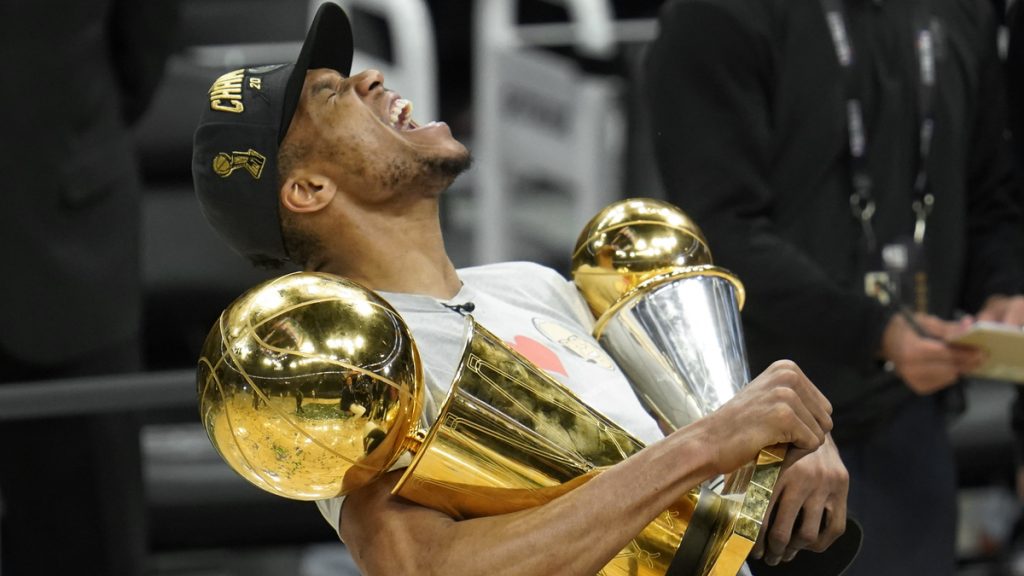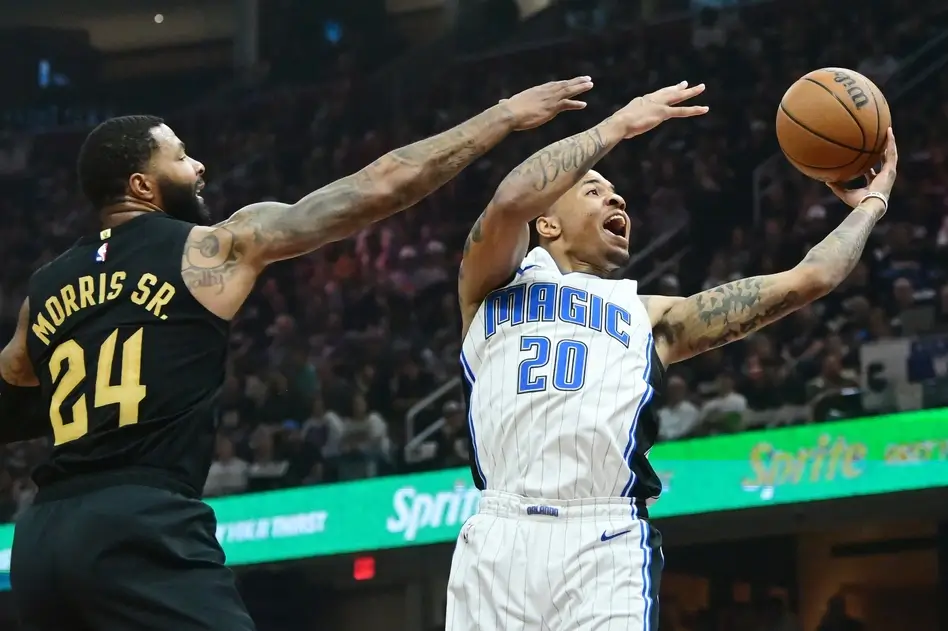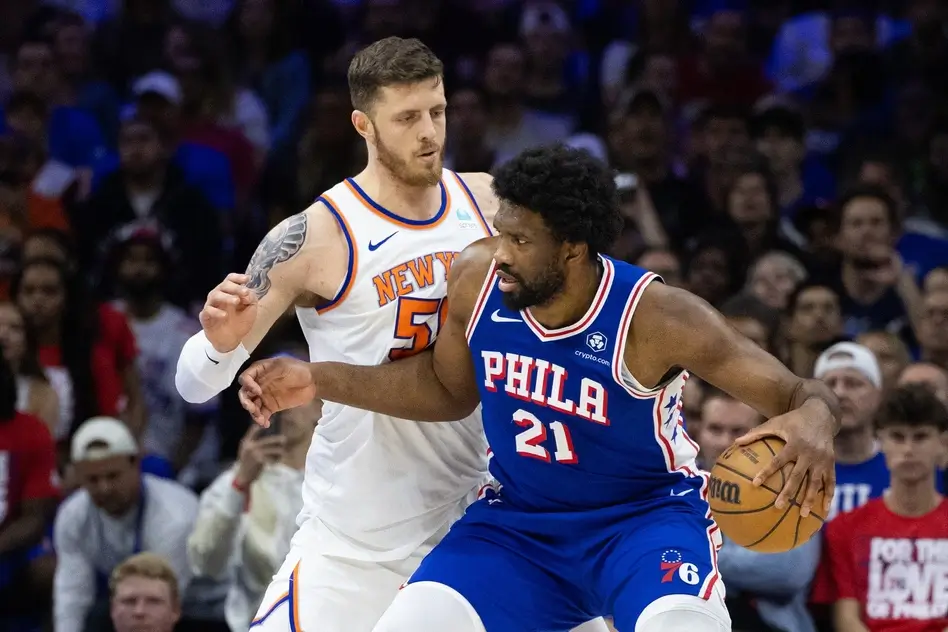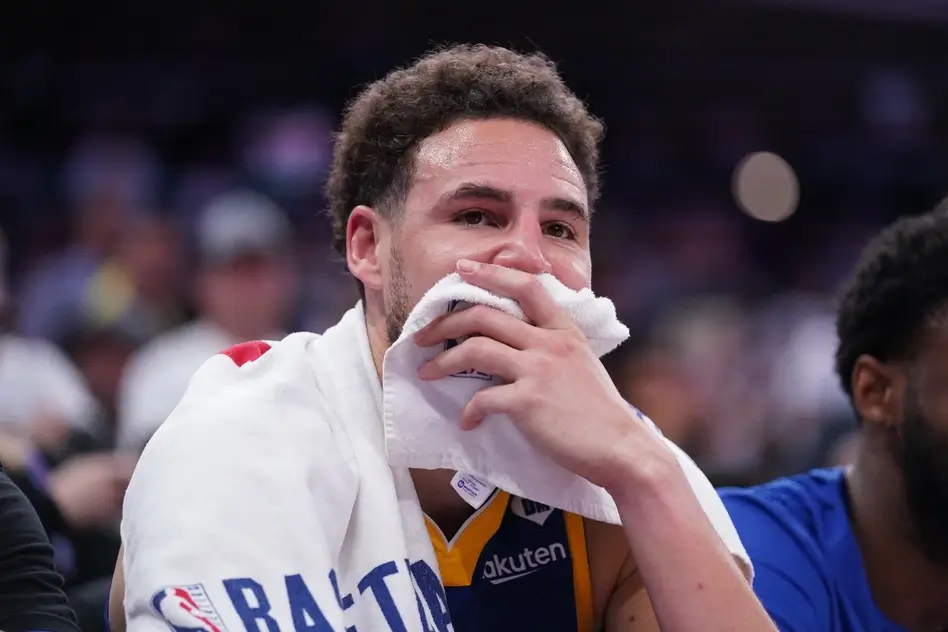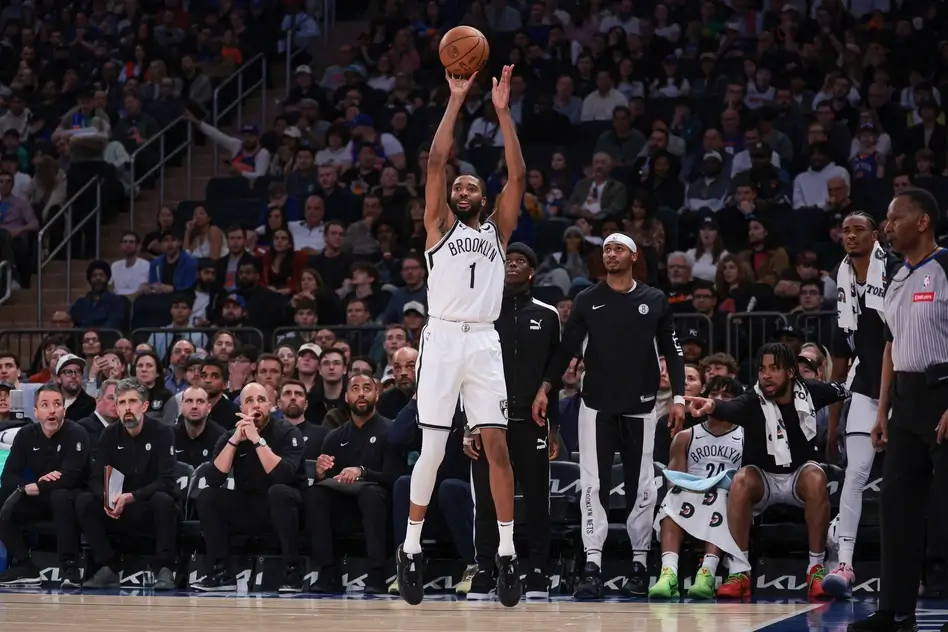Fifty years since the Milwaukee Bucks won their last world title, Giannis Ugo Antetokounmpo poured in 50 points to bring the Larry O’Brien trophy back to Wisconsin. It was poetic justice in every sense of the phrase and was nothing short of vindication for a franchise that stood by its core pieces for years.
Until that moment, after all, the organization was often ridiculed by fans and media alike. Past playoff defeats and criticism over their franchise cornerstone rendered them victims of narrative for the better part of the Mike Budenholzer era. With the ways they crumbled in the face of adversity, it wasn’t completely unwarranted, either.
And though they were a more complete and refined team this time around, they still seemed to be the underdogs in most every playoff series they took part in. But they were not to be denied a third chance at a championship this season.
Here’s a quick look at how the 2021 NBA champions pulled it off.
Milwaukee’s big three
That Phoenix’s 16-point lead in Game 5 evaporated with Giannis on the bench is a testament to the team’s cohesion with and without its superstars. In hindsight, that furious second-quarter run was a perfect microcosm of everything that went right for the Bucks this series. Team basketball, timely production from their stars, and unbridled two-way effort were the story of the series.
It’s not incorrect to say the two-way trio of Middleton, Holiday, and Antetokounmpo just doesn’t have the gravitas of a superteam on paper. They’re hardly mentioned in the same breath as the LeBron Jameses and Kevin Durants of the world.
Against Phoenix, they played like superstars. All series long, the Bucks trio paced the team down the stretch, made crucial plays to keep them afloat, and hit timely shots. Khris Middleton’s 40-piece takeover in Game 4 was followed by Jrue Holiday’s two-way explosion in Game 5 where he was responsible for 24.3% of Milwaukee’s points and 59.1% of their assists.
Beyond their starting crew, the team’s next-man-up mentality was clear.
Pat Connaughton was, in many ways, the unsung hero for Milwaukee in this series with timely scoring and unbridled energy. He shot the three-ball on 44.1% after shooting 37.5% in the past three playoff series. Bobby Portis, who quickly became a fan favorite, poured in 16 crucial points in the series-clinching win.
Giannis Antetokounmpo
Superstars matter, and for all the Bucks’ whole-of-team struggle for the title, none of it would have happened without its All-World interior minister in the Greek Freak.
After all the criticism that built up over the past two years, Giannis understood the simple reality of the situation: When you are the two-time MVP in the Finals, the Buck stops (and starts, really) with you.
It certainly helped his case, too, that Dario Šarić was sidelined with an injury early on, leaving only Deandre Ayton and Frank Kaminsky to throw at Milwaukee. This was the writing on the wall and spelled the beginning of the end.
And so a week removed from hyperextending his knee, Giannis went out and put up historic numbers.
It’s tough to do justice to the performance of the Finals MVP, now arguably the best basketball player in the world. His aggression in the paint was as graceful as it was visceral. Regardless of who the Suns threw at him, the Greek Freak had the physical wherewithal to answer every time. Not even Ayton nor Jae Crowder—formerly a member of Miami’s famed anti-Antetokounmpo committee—could hold back Milwaukee’s mimicry of basketball Thanos.
Even after two 40-point games, he didn’t stop there. With the championship in sight, Giannis took the Bucks home with 50 points by way of relentless domination against an utterly misshapen Suns defense.
In the process, he made sure to prove his detractors wrong. After all the noise about free throws being his hamartia, the Finals MVP hit 17-19 of them to will his team to a 4-2 victory. He posted norms of 35.2 points, 13.2 rebounds, and 5.0 assists per game against Phoenix.
The Bucks lived and died with their Greek superstar. A hard-fought six-game series later, they’re world champions.
Defense wins championships
It’s repeated ad nauseum among basketball purists, but this series was yet another testament to the years-old maxim: Defense wins championships. The Milwaukee Bucks entered the series as the best defense in the playoffs with their league-leading 105.0 points given up per 100 possessions. It was all they needed.
Consider this: In their 72 on-court minutes together, Milwaukee’s starting lineup of Lopez, Giannis, Tucker, Middleton, and Holiday allowed 98.7 points per 100 possessions against the Suns, per NBA.com/stats. Not only would this have been first in the league in the regular season, it would have also been one of the best defenses in league history.
Their size, too, had everything to do with it. The Bucks didn’t take long to pounce on their pronounced advantage in that area, as evidenced by the Bucks outrebounding Phoenix for the series, 46-39. They finished with 30.7 points per game off turnovers and offensive rebounds.
It wasn’t just Milwaukee’s defense that set them apart; it was their versatility. As if their interior presence wasn’t already a gargantuan undertaking, their perimeter play also made scoring a tall task. Budenholzer’s men rotated on a string and made life hard for Devin Booker and Chris Paul. For the series, Booker shot the ball on 7/16, 15/28, and 11/31 efficiency with Connaughton, Tucker, and Holiday as his closest defenders. The misses eventually added up, with Booker scoring just 19 points in the closeout game. He missed all seven of his attempts from deep and finished 8-22 overall.
Defensive plays were the difference-makers for the Bucks. Antetokounmpo’s iconic block in Game 4 was followed by Holiday’s steal in Game 5.
Defense was and is the core identity of the Milwaukee Bucks. And they had all the faith in the world in who they were.
Champions win championships
The four straight wins against the team that ousted them last year should have been foreshadowing enough that great things were coming. But then they came back from an 0-2 deficit against All-League greats. And then they did it again, and again.
More than anything else, the Milwaukee Bucks won 16 postseason games by working each day to deserve it. Throughout this run, the team refused to dodge their demons from last year, stood up to the challenge of facing an unbeatable super team, and overcame 0-2 deficits twice. They had their trial by fire and passed with flying colors.
Where past Bucks teams would have rolled over in the face of adversity, these Bucks took the tough route straight-on and focused solely on themselves. When adjustments were necessary, Budenholzer was quick to act. When they were down, they didn’t blame the moment; instead, they looked inward and refused to shy away from the challenge. That’s heart.
Until its dying seconds, the series was an uphill battle every second of the way. For two games in a row, Milwaukee had to absorb two 40-point games from a furious Devin Booker who could hit shots from anywhere and regardless of the defense. The Bucks’ offensive output from its normally incendiary scorers outside of Antetokounmpo ran dry in Game 6, but as in all their games this series, they had an answer for every possession. This speaks to their coaching versatility as much as it does their grit and determination.
And that’s what champions are.
They wanted it the most
For anyone paying attention, these Bucks were not the ones who conceded sweeps to the Miami Heat and Toronto Raptors. All season long, they had long-term playoff success set in their sights. It showed in their roster acquisitions as much as in their constant on-court experimentation. The adjustments were there after their losses, and they adapted and got better with every game.
This is why the Bucks traded a top-ranked defense for a 7th-ranked one that had more options, for instance. It took a while, but it was clear by the time the playoffs started that the Bucks spent the regular season building good habits and searching for their best selves. Gone were the days of near-exclusive adherence to Mike Budenholzer’s patented pairing of drop coverage and five-out spread offense. Against the Phoenix Suns, the Bucks employed everything from zone to switching to trapping.
And as they say, the rest was history.
At the end of the day, the Bucks won the championship by being the best and most balanced team in the association. After years of disappointment hanging heavy over the Bucks, they were just built for the moment this year. Injuries aside, it was the Milwaukee Bucks who clearly grew from the two years of struggle and heartbreak and simply reaped results that were theirs for the taking.
When a team faces this level of adversity and emerges victorious, it can only mean they were champions all along. In the final analysis, it’s really that simple, isn’t it?
[spreaker type=player resource=”show_id=4112709″ width=”100%” height=”200px” theme=”light” playlist=”false” playlist-continuous=”false” chapters-image=”true” episode-image-position=”right” hide-logo=”false” hide-likes=”false” hide-comments=”false” hide-sharing=”false” hide-download=”true”]


